When you see his long, curly hair and the large smile on his face, you could think he’s one of those late rebels who go to Vama Veche and dance barefooted on the beach until morning. 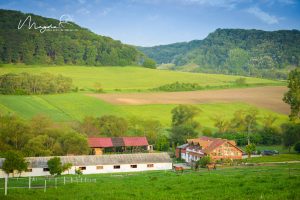 Then you see his look. You feel his attitude. His daring. Something tells you he’s different. He can even intimidate you, though he probably doesn’t do it on purpose.
Then you see his look. You feel his attitude. His daring. Something tells you he’s different. He can even intimidate you, though he probably doesn’t do it on purpose.
At 42, Mihnea Virgolici is one of Romania’s mo 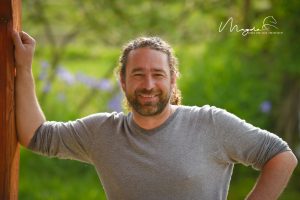 st well-known equestrian people. His horse farm near Sighisoara, Cross Country Farm, ranks in Lonely Planet’s top recommendations for Europe, and the competition he organizes, Transylvania Horse Show, attracts hundreds of international participants each year.
st well-known equestrian people. His horse farm near Sighisoara, Cross Country Farm, ranks in Lonely Planet’s top recommendations for Europe, and the competition he organizes, Transylvania Horse Show, attracts hundreds of international participants each year.
“I knew my life would be that of a horse owner ever since I was born,” says Mihnea while stopping the car in the shadow, on the dusty country road. Getting to talk to him is an adventure in itself, as he is always on the phone or on the run.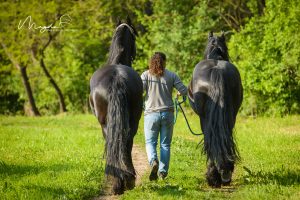
I’ve almost kidnapped him. When I heard he had to leave to see a tractor, I got into his car. On our way back, we stopped in an area with no phone signal. It was a good idea, as his story lasted for more than one hour. I interrupted him from time to time to make sure the things he was telling me about had really happened and that he was not making fun of me.
“At 9 I was drawing stable sketches and was trying to plan how much a horse eats,” Mihnea reminds. 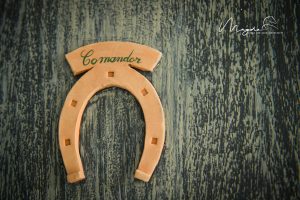 His strategy, written in a notebook, was to raise two rabbits, then to sell them and buy sheep, then calves and then horses.
His strategy, written in a notebook, was to raise two rabbits, then to sell them and buy sheep, then calves and then horses.
He lived in downtown Bucharest. He planned to make his farm in a small yard his parents had in Otopeni, near Bucharest. “When I was a kid, my grandparents used to ask me what I would do with their apartment after they died. To their horror, I told them I would turn it into a stable,” he laughs.
His first books, the bibles he read daily, were “Domestic animals’ behavior” (at 10), “The guide of the zootechnic brigadier” (at 12) and “Zootechnic constructions and designs” (at 14).
Noise. A tractor passes by. Within moments, the car is full of dust that we can barely breathe. What a strange kid, I think to myself. Mihnea checks his phone. It’s hard to believe it’s not ringing.
The beginning
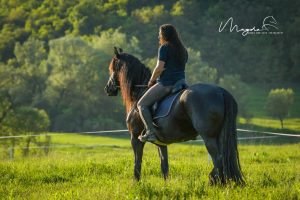 At some point he had given up the idea of having horses and had started to raise money for a motorbike. But his parents made him a special gift for his 18th anniversary: Maur, a three-and-a-half-year black horse. “I saw my dream come true. It was a modest horse, whom I’ve had for 20 years and 4 days. I’ve identified myself with him,” says Mihnea.
At some point he had given up the idea of having horses and had started to raise money for a motorbike. But his parents made him a special gift for his 18th anniversary: Maur, a three-and-a-half-year black horse. “I saw my dream come true. It was a modest horse, whom I’ve had for 20 years and 4 days. I’ve identified myself with him,” says Mihnea.
Without telling his parents, he moved the horse to the house in Otopeni. In the kitchen. He didn’t have a stable yet. 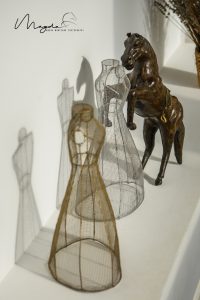 He bought a second horse after he entered the Zootechnical Faculty and the third after he sold an old car.
He bought a second horse after he entered the Zootechnical Faculty and the third after he sold an old car.
His adventure in Otopeni, where he had at some point 15 horses, lasted 8 years. He had no stable man during the first four years. He used to leave the house and feed the horses at 5am and then go to faculty at 9am. “But the horses were unhappy. Their lives were in the stable and in the manege. They weren’t free. I decided to leave,” says Mihnea.
He was 26. He sold his share in the equestr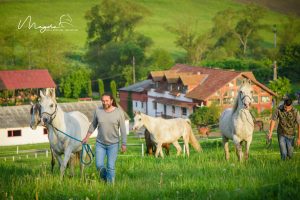 ian center he owned together with his brother, Vadim, who is now a renowned horse veterinarian, and paid his debts. “That year I’ve searched for my direction,” he says.
ian center he owned together with his brother, Vadim, who is now a renowned horse veterinarian, and paid his debts. “That year I’ve searched for my direction,” he says.
Dust again. Now we know what to do. We laugh and close the windows quickly. It is extremely hot. A fly enters the car and keeps buzzing at my ear.
The medieval festival at Sighisoara. Mihnea was 27. He went to visit an aunt who lived in the area. He walked over the hills, passed by a forest and sat down, thinking how nice it would be to raise horses there and organize competitions.
It happened that, after one month, he went with his mother in the Prod village, near Sighisoara. 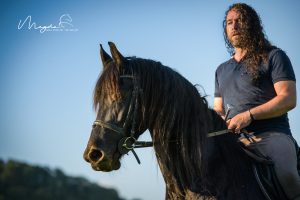 On their way he saw an old, degraded hop and cow farm that was to be sold at auction. “I barely had money for a bus. I borrowed from friends,” he reminds.
On their way he saw an old, degraded hop and cow farm that was to be sold at auction. “I barely had money for a bus. I borrowed from friends,” he reminds.
He bought the farm in 2002 and was left with EUR 8,000. That meant almost nothing considering the place was a ruin, with no functional door or tap. Shepherds used to live with their pigs in the former farm offices and make fire in the middle of the rooms with the wood from the windows.
He brought only one horse, Maur. He paid USD 300 for an old Dacia 1300, which needed a willow branch to close its doors. He cleaned the stable, bought a chainsaw, a mower, a concrete mixer, four calves, a horse, made a web page and the money was gone.
“The 7-year apocalyptical years of my life had started,” says Mihnea.
The plot
It was a big farm, full of degraded buildings. “I wanted to sell it at some point, convinced I was the victim of my own dreams and illusions,” he says.
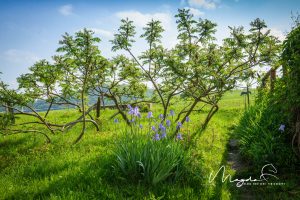 He found an iron frame in the farm, he painted it, brought a second hand mattress and made himself a bed. During his first winter there, in the morning, he used to take the blanket out of the window and find snow into the room.
He found an iron frame in the farm, he painted it, brought a second hand mattress and made himself a bed. During his first winter there, in the morning, he used to take the blanket out of the window and find snow into the room.
He managed to convince a former faculty colleague to grow potatoes. He borrowed EUR 3,000. T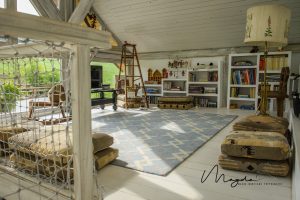 hey slept together in the same bed during the first week because there was no other bed available. It was terrible cold. They kept their clothes in a broken fridge. “We finished the money before we could plant the seeds,” says Mihnea.
hey slept together in the same bed during the first week because there was no other bed available. It was terrible cold. They kept their clothes in a broken fridge. “We finished the money before we could plant the seeds,” says Mihnea.
At this point his story seems hard to believe. I ask him if it’s true or if he makes things up. He says that’s exactly how it was. The fly finally gets out of the car. A neighbor passes by and says hello.
In autumn, his friend gave up and left. The old Dacia got broken and he was left with a bicycle. “I sold the mower to have money to eat. Nobody came to ride horses,” he reminds.
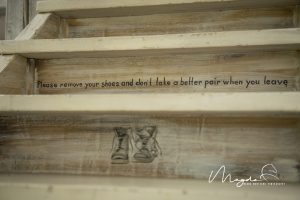 He also sold some iron he had found in the farm and survived the spring by plowing people’s fields. He had no phone signal there, nor internet. He had to go to a café in Sighisoara to check his email.
He also sold some iron he had found in the farm and survived the spring by plowing people’s fields. He had no phone signal there, nor internet. He had to go to a café in Sighisoara to check his email.
I wonder if I would have resisted in these conditions. He had horses in the stable, that’s true, but he was alone and without growth perspectives.
The rise
One day he received a phone call from an official of the Romanian Equestrian Federation to go to a referee course for the Athens Olympics in 2004. He had to pay the travel expenses himself. “I sold a cow and bought a plane ticket. My colleagues were the wives of Greek millionaires,” he says.
He learned a lot there and stayed close to the world’s horse riding elite. He saved money at the Olympics. He started to shoot movies with his horses. 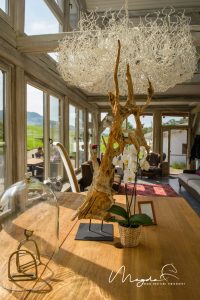 He began to buy horses, train and then sell them.
He began to buy horses, train and then sell them.
Meanwhile, he had managed to buy an old minibus, which “defied the physics’ laws.” He made a leaflet promoting horse riding lessons and walks in the nature and distributed it in Sighisoara. He convinced one client. This was the first money he made out of riding lessons. Slowly, this became his main income source.
At the end of 2004 he had paid his debts and had 18 horses. He had managed to change the first windows and doors for the guest rooms, located in the former farm offices.
“Everything took a long time, each window, each liter of paint. I haven’t left this place for 7 years, except for going to a horse riding contest. I haven’t had one free day,” says Mihnea. He laughs 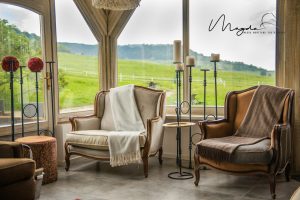 when he says that his rise has begun when he gave up the fridge where he kept his clothes and bought a wardrobe.
when he says that his rise has begun when he gave up the fridge where he kept his clothes and bought a wardrobe.
His business grew exponentially from then on. Most of his clients were foreigners, who recommended his farm on Lonely Planet. In 2011 he started to organize the Transylvania Horse Show 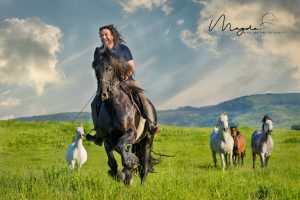 competition, which was considered the best student horse contest in the world for five times in a row by AIEC (Association Internationale des Etudiants Cavaliers).
competition, which was considered the best student horse contest in the world for five times in a row by AIEC (Association Internationale des Etudiants Cavaliers).
The seventh edition of the competition takes place on June 16-18 and, two months in advance, 15 teams from 17 countries had already occupied all the available seats.
He starts the car. The story has reached the present. We enter the gate of the farm that hosts now 30 horses. I think what strength of character the man next to me has. I can’t help admiring him.
I take a good look at the farm and try to imagine how it looked 10 years ago. The house is now elegant, refined, decorated with style and good taste. One can easily see the decorations were made by Adela, his wife, who is a designer. Although they’ve known each other since kindergarten, he asked her in marriage during last year’s competition. 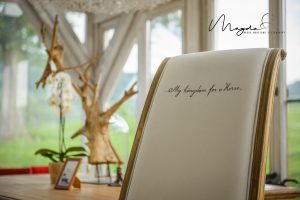 Mihnea had asked the blacksmith to make a ring from two nails used for horseshoes. The ring fit Adela perfectly.
Mihnea had asked the blacksmith to make a ring from two nails used for horseshoes. The ring fit Adela perfectly.
It’s getting dark. It smells like French potatoes. I look out of the window at the horses that graze on the meadows in front of us. I sit on the large armchair that says “My kingdom for a horse.” Dinner is set in the room where snow used to come through the windows years ago. Everything is now elegant. I wonder how the farm will look in 10 years.
